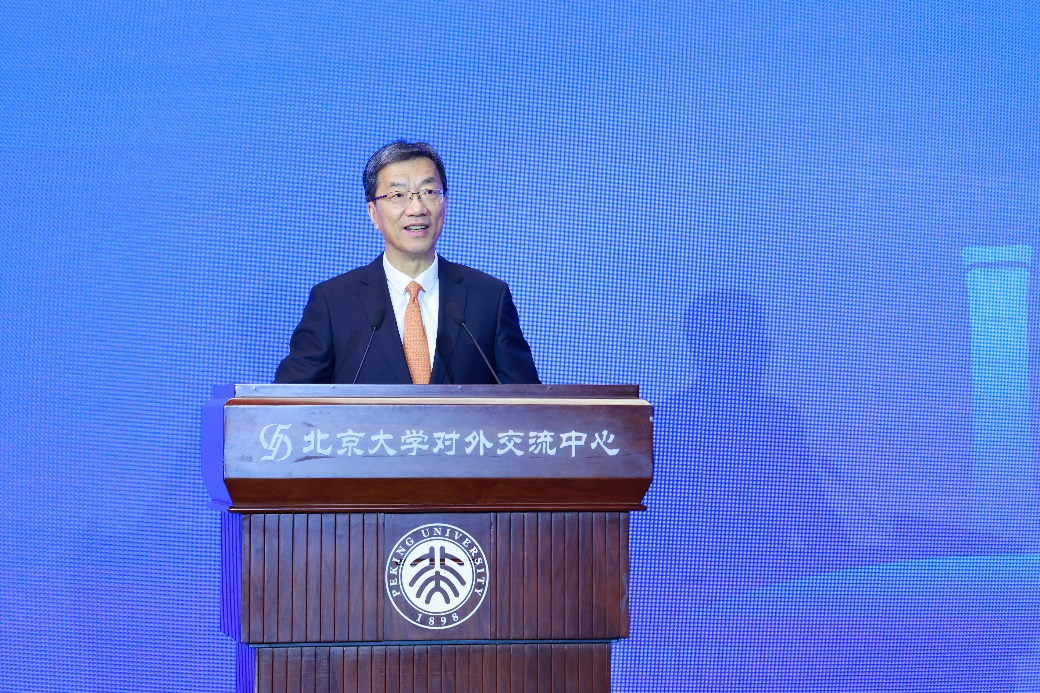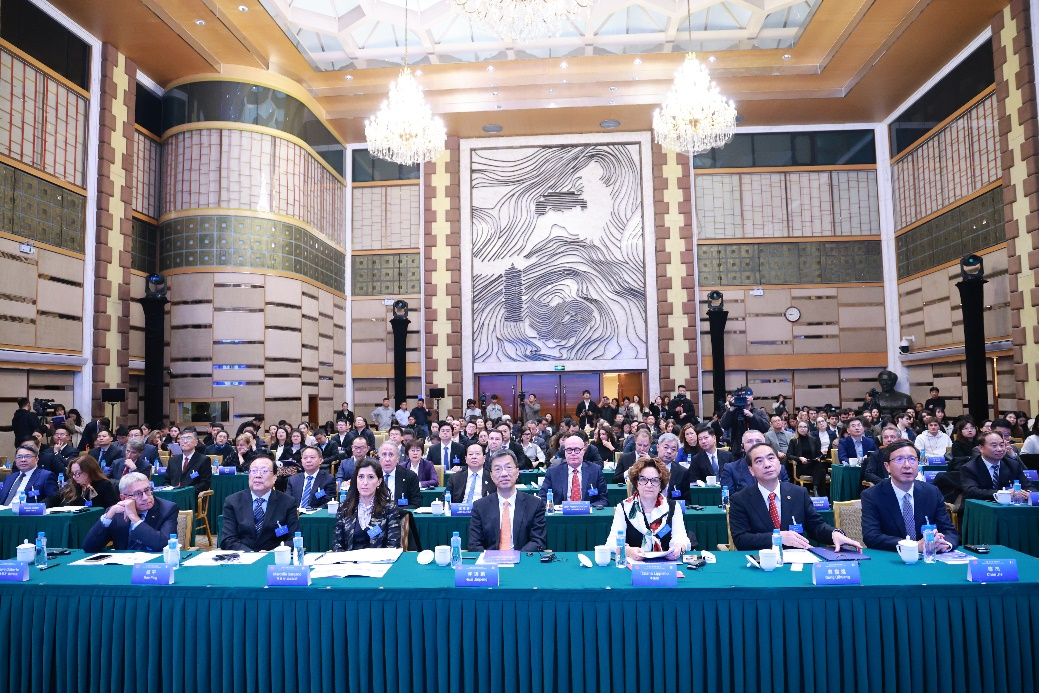
Peking University, November 17, 2024: Educational cooperation between China and Italy should be advanced as higher education plays an increasingly important role in promoting cultural exchange, said ministerial officials and university leaders from both countries during a dialogue held at Peking University (PKU).
The China-Italy University Rectors Dialogue, organized by the Ministry of Education of the People's Republic of China and the Ministry of University and Research of the Republic of Italy, was held at Yingjie Overseas Exchange Center on November 9, 2024.
The dialogue was co-hosted by Peking University and Zhongnan University of Economics and Law under the theme of "Promoting Mutual Learning Among Civilizations and Cultivating Outstanding Talent.” Two parallel forums and one parallel student forum were held. These forums collectively explored topics such as Sino-Italian higher education collaboration, coordinated innovation, high-level talent development models, and sustainable development for the future.
Chinese Minister of Education Huai Jinpeng, Vice Minister of Education Chen Jie, Italian Minister of University and Research Marcella Gargano, and, Science and Technology Counsellor of Embassy of Italy Alessandra Guidi, plus representatives from nearly 50 Chinese and Italian universities gathered to discuss educational cooperation, innovation, and talent cultivation. Vice Minister Chen Jie presided over the opening ceremony.
Chinese Minister of Education Huai Jinpeng speaks at the Dialogue
Chinese Minister Huai Jinpeng emphasized the deepening educational and scientific collaboration between China and Italy, marking the 20th anniversary of their Comprehensive Strategic Partnership.
He stated that Chinese and Italian universities could tap on complementary advantages, and adhere to the open and all-encompassing principle to expand the scope of Sino-Italian educational cooperation. International exchanges in humanity and collaboration in scientific research were all potential areas for future bilateral relations.
Minister Huai also emphasized the importance of education in cultivating future leaders, and the role of cultural exchange in enhancing mutual understanding.
“In the face of rapid global changes and challenges, higher education is becoming an increasingly valuable asset and critical resource for a nation and its people,” Huai said. He hopes that Chinese and Italian universities will uphold the values of openness and inclusiveness, leverage their complementary strengths, and expand cooperation to address shared challenges and enhance global well-being.
Minister Huai also made three proposals to further strengthen China-Italy cooperation.
First, he called for the implementation of the consensus reached by the heads of state, emphasizing the importance of advancing human civilization by drawing on historical experiences, fostering intellectual exchange, and respecting the diversity of world cultures. He urged both nations to promote shared human values, prioritize the transmission and innovation of culture, and enhance international cultural cooperation. These efforts, he continued, will contribute to world peace, build a community with a shared future for humanity, and create new forms of human civilization through the combined wisdom of China and Italy.
Second, Huai stressed the need for deepened research cooperation to address global challenges. He proposed expanding joint efforts in foundational, emerging, and interdisciplinary fields, as well as accelerating the development of future talent and leaders. By conducting collaborative research on foundational theories and key technologies, China and Italy can contribute to the sustainable development of human society.
Lastly, Huai called for enhanced mutual learning and cultural exchange between Chinese and Italian youth. He emphasized the importance of utilizing diverse forms of exchange to foster mutual understanding and goodwill, planting seeds of friendship for future generations. These exchanges, he noted, would inject positive energy into bilateral relations and empower youth to play an active role in building a community with a shared future for humanity.
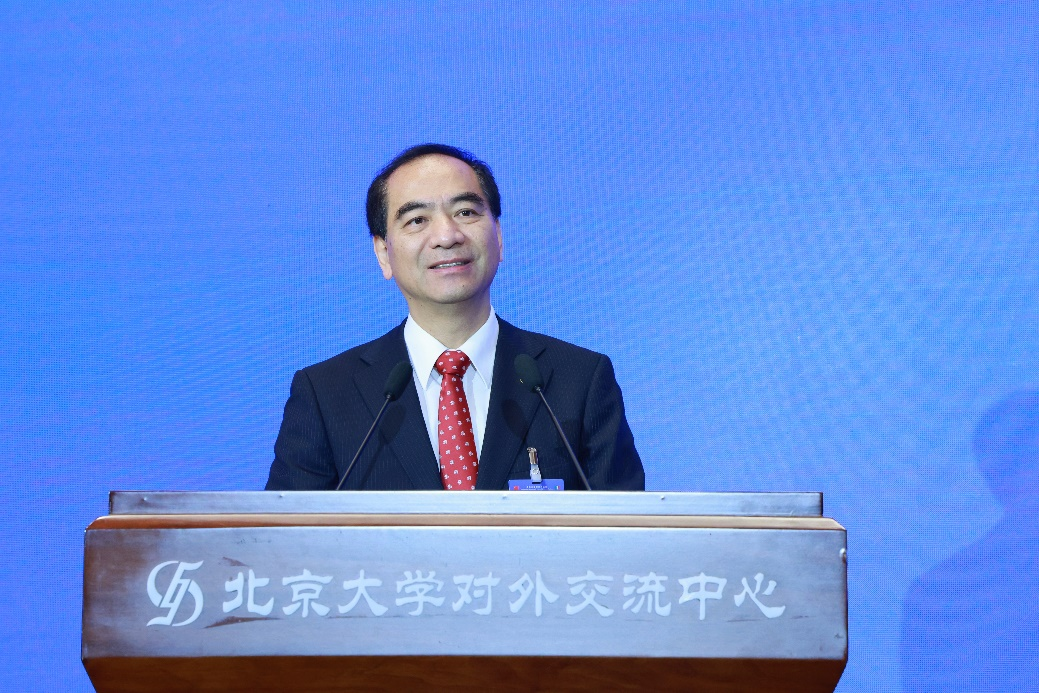
PKU President Gong Qihuang
PKU President Gong Qihuang praised Italy’s achievements in the development of higher education and reaffirmed the university’s commitment to working with Italian institutions. The China-Italy University Rectors Dialogue would enable both countries to shoulder the mission of cultural exchange and open a new chapter in cultural exchange. He emphasized that their joint efforts would develop new ideas, drive scientific progress, and strengthen China-Italy ties for a shared future.
In a video address, Italian Minister Anna Maria Bernini highlighted the potential of joint research initiatives and student exchanges in enriching the academic landscape of both countries. She highlighted the strong foundation of Italy-China collaboration across academia, technology, music, dance, and other fields, which has laid a solid foundation for bilateral ties. She reviewed the efforts by Italian government to facilitate Chinese students to study in Italy, and expressed the desire for pragmatic collaboration and dialogues between the two government agencies.
Tiziana Lippiello, President of the University of Venice and Executive Committee Member of the Italian University Presidents' Association, stressed the importance of talent development, innovation, and interdisciplinary education in higher education.
She also reflected on the contributions of cultural ambassadors like Marco Polo and Matteo Ricci to China-Italy exchanges, stressing that mutual respect and understanding are key to cultural dialogue. She hoped the Sino-Italian University Dialogue will foster cooperation between universities, promote interdisciplinary learning, and help cultivate young people with innovative skillset and ability to handle today’s complex world. She advocated for strengthening the cultural, technological, and social ties between the two nations and deeper friendship based on shared historical heritage and desire for future collaboration.
Next, the Chinese and Italian universities signed a series of cooperation agreements, covering various fields such as academic research, faculty and student exchange, aiming to better facilitate the continuous development of higher education in both countries by sharing resource and strength.
The Dialogue also launched the Italy chapter of the “Doubling Europe” initiative. The initiative aims to strengthen exchanges between Chinese and European youth, nurturing a new generation of talent with a global perspective for the future development of China-Europe relations. It seeks to promote understanding through dialogue and build friendships through collaboration.
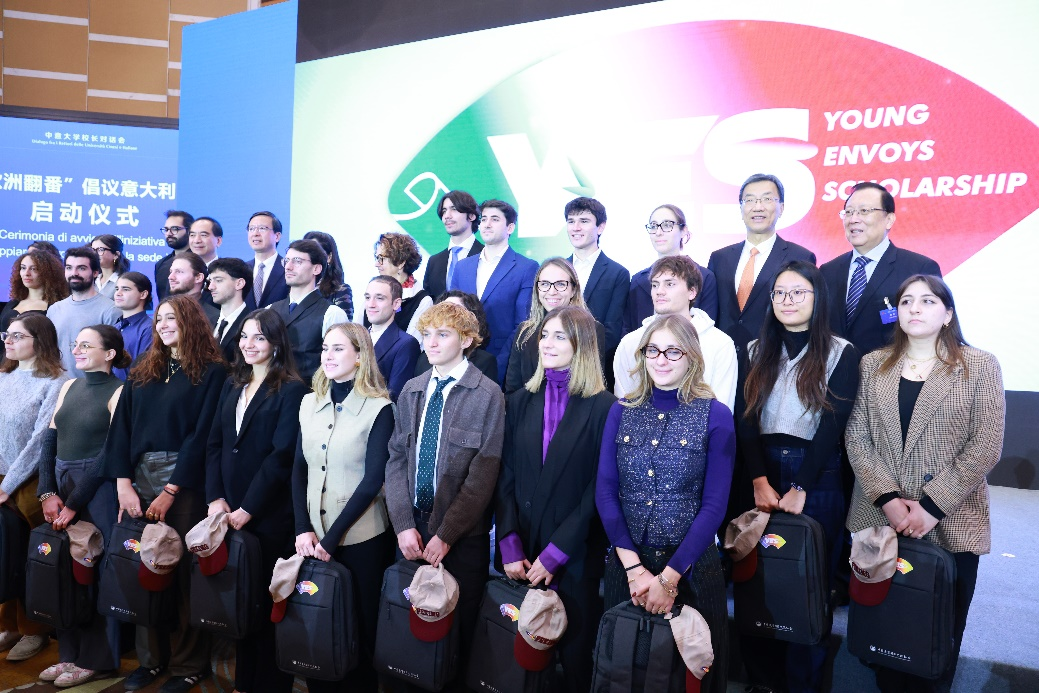
In two parallel forums, Italian and Chinese representatives engaged in in-depth discussions on two key topics: “Civilization Heritage and Innovation: The Future Mission of Higher Education” and “Talent Development and Technological Innovation: Opportunities and Challenges in International Cooperation.”
These forums explored effective strategies for cultivating high-quality talent, emphasizing the importance of interdisciplinary collaboration and the need for innovative approaches to meet the challenges of the digital age. The discussions provided valuable insights into how Italy and China can strengthen their educational partnership and leverage their respective strengths to address global issues in education and technological development.
President Gong delivered a keynote address at the “Talent Development and Technological Innovation” panel, noting that higher education is facing new and complex challenges amid global transformations. He emphasized that deepening international collaboration across universities and research institutions is more crucial than ever. Gong called for education to be a gateway for knowledge and cultural exchange, allowing technology to serve as the driving force for progress, and students to be the core of these initiatives. He advocated for broader international collaboration to foster innovative responsible leaders with global perspectives and skill-set in addressing the evolving needs of the world.
A parallel student pane titled “Youth in Action, China and Italy Together—Building a Sustainable Future” brought together about 60 students from China and Italy. They discussed their roles in advancing the global sustainable development agenda, sharing their perspectives on how youth can contribute to positive change in the world. The panel provided a platform for students to voice their ideas and demonstrate their commitment to driving progress and shaping a more sustainable future.
Marcella Gargano, Director General of the Ministry of University and Research of Italy praised the platform for dialogue, urging both countries to cultivate responsible global citizens with critical thinking skills. Chen Yulu, President of Nankai University, advocated for the promotion of cultural exchange through art forms such as drama and music. Oliviero Diliberto, Rector of Sapienza University of Rome 1, noted progress in Sino-Italian cooperation and emphasized further potential. Representatives from both sides proposed measures to cultivate talent through joint training, dual degree programs and more, to strengthen intellectual Sino-Italian cooperation.
Looking ahead, Italian and Chinese universities are to join fsorces in addressing global challenges by nurturing high-caliber talent, advancing new thoughts and technologies that impact the world and civilization, and together, to make future contributions to the civilizational inheritance and mutual learning.
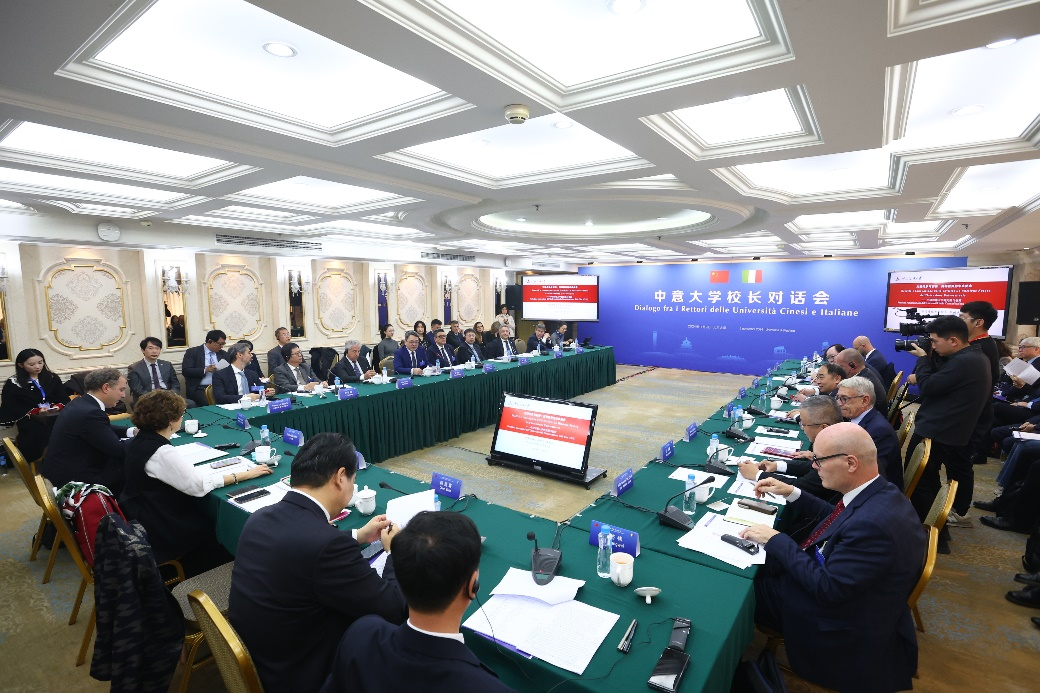
Reported by: Zhuo Yaying
Edited by: Wu Jiayun, Zhang Jiang, Sean Tan
Photos by: Li Xianghua, Liu Yueling, Qi Liang, Li Mengyao

